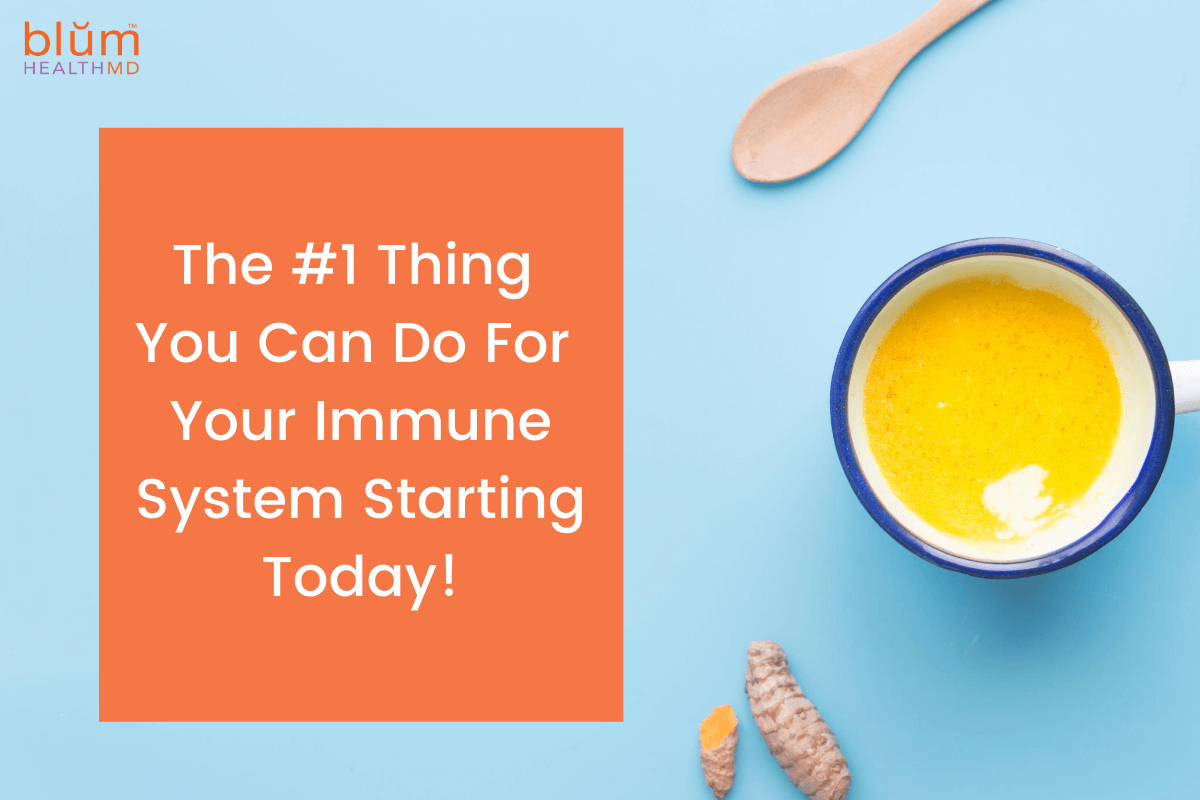
So, let’s be real … with COVID still sweeping through communities, you might be wondering what you can do to protect yourself as we move into the flu and cold season. Yes, very soon, we will be moving indoors with closed windows and that begs the question, “How will I keep myself safe?”
With over 70% of your immune system living in your digestive tract (yes, that’s true!), it makes sense that the food you eat is the first stop in empowering your immune system to fight infections and keep you healthy.
There are foods that are particularly good at boosting immunity, but the reality is the first order of business is to use “food as medicine” to reduce inflammation. Often when I talk with people about “reducing inflammation” their eyes glass over. It’s not easy to grasp.
Inflammation. When it’s on the outside, like arthritis, we can see it. When it’s on the inside we can’t see it. And often we can’t even feel it. (Although I’ve heard so many times, “I didn’t realize I wasn’t supposed to feel that way.”) But if you get sick often, if you’ve taken lots of antibiotics in your life, if you’ve had stress or trauma, or if you eat inflammatory foods (like sugar) or the Modern American Diet, you’ve likely experienced inflammation. In fact, you’re likely inflamed right now.
Inflammation is when your immune system or other cells in your body release irritating chemicals that cause irritation on the inside. Remember this is a normal process because this is how your body fights infections or an injury, and the inflammation resolves once the infection or injury is over.
However, if high levels of these inflammatory chemicals are released continuously (which can happen if you are eating a lot of SUGAR), the normal functioning of your cells can be interrupted, and healthy tissue gets damaged, including your immune system. This is not so good-especially since more and more studies link inflammation in the body to many serious illnesses and conditions.
To make sure your immune system is in tip top shape, which will protect you from foreign invaders like COVID-19, influenza and the common cold, it’s important to avoid processed foods and eat an anti-inflammatory, antioxidant-rich diet, full of vegetables, fruits, cultured foods, healthy fats, planted-based proteins and minimal animal protein.
If there’s only one diet change you choose to make it’s this:
GET RID OF SUGAR TO REDUCE INFLAMMATION!
Sugar is inflammatory and suppresses your immune system. Sugar stimulates your immune cells to actively release inflammatory molecules that travel throughout your body causing damage and irritation.
Avoid high glycemic foods like soda, white flour and processed sugar. When it comes to sugar, you always want to choose low-glycemic vs. high-glycemic foods. The glycemic index determines how quickly a particular food raises your blood sugar level. High blood sugar causes inflammation and damages your immune system, and puts you at risk for diabetes, high blood pressure, and cardiovascular disease. Any food processed with white sugar or white flour is high-glycemic and should be eliminated. That means bagels, breads, breakfast cereals, cakes, cookies, crackers, candy, and soda.
Avoid an over-focus on carbohydrates as the main source of calories for the day. Make your plate for lunch and dinner half vegetables — that’s a great start. Natural, unprocessed foods, like fruits, vegetables, legumes and whole grains provide health-promoting vitamins, minerals, fiber, and phytochemicals — all good for your immune system. Use rice and other grains like condiments.
Read the labels of everything that comes in a package. Food manufacturers are sneaky. They often add sugar (and a lot of sugar) to foods that need very little sugar. Yeah, I know our panels are in grams. Definitely annoying, but here’s what you need to know: We recommend keeping your added sugars at about 24 grams. And, 4 grams of sugar = 1 teaspoon. So, if that granola bar you love has 24 grams of sugar — that’s six teaspoons (and your allotment for the day).
Here are some substitution suggestions for common high glycemic foods:
Do you like soda, fruit juice, sweetened drinks? Drink filtered water, herbal teas, mineral water, fruit-infused water.
Do you consume products with corn syrup, cane sugar, or any other added sugar (check your condiments!)? Try paleo ketchup, mustard, fancy vinegars, and herbs and spices, such as basil, cinnamon, cumin, dill, garlic, ginger, rosemary, tarragon, thyme, turmeric.
Do you eat dried fruit, frozen yogurt, ice cream, sorbet, cookies, candy or other sweets? Try coconut milk yogurt with your own fruit, dark chocolate covered almonds and carob.
Do you typically eat pretzels, potato chips, corn chips, cookies and crackers made from white flour, muffins, waffles, pancakes, popcorn or bagels? Switch to gluten-free whole grain cookies, gluten-free almond meal crackers with hummus or guacamole, nuts, seeds, fresh fruit.
P.S. If you’re as concerned as I am about shoring up your immune system to protect yourself from infections like COVID-19, influenza and the common cold as we begin to move indoors, consider joining Dr. Blum and I for our new course — Immune System Strong. Four LIVE classes with Dr. Blum, 8 coaching calls with me, you’ll learn exactly what you need to do to fortify your immune system. We begin soon!
Meet Melissa: Melissa Rapoport is the Manager of Health Coaching and Lifestyle Programming at Blum Center for Health in Rye Brook, NY. She combines her graduate work in Developmental Psychology with her education in nutrition, health and coaching to create highly individualized programs that result in lifetime change. A contributing author to three international bestselling books, Melissa’s greatest joy is her relationship with her two daughters. To learn more about Melissa’s coaching practice at Blum Center for Health, click here.
